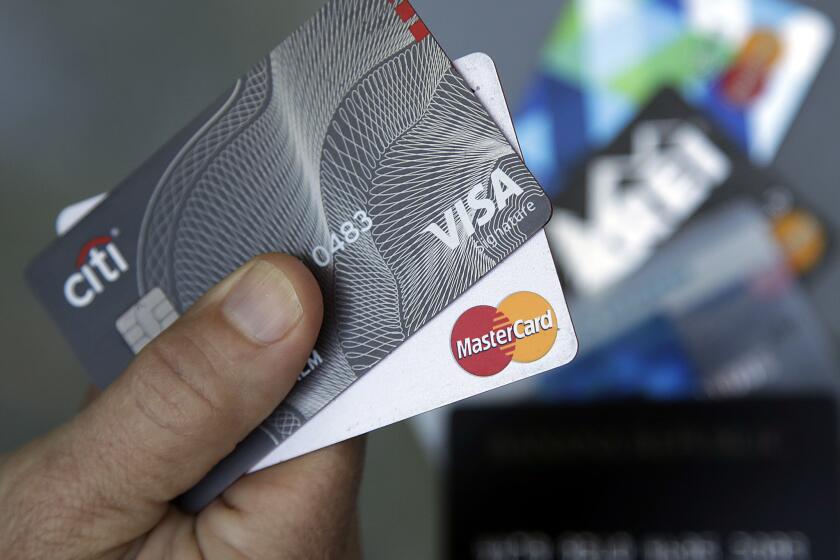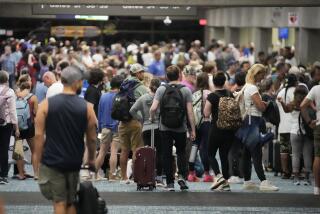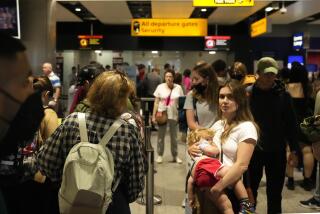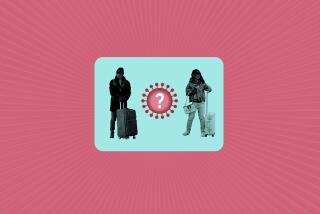Travel during the pandemic: 7 things you need to know
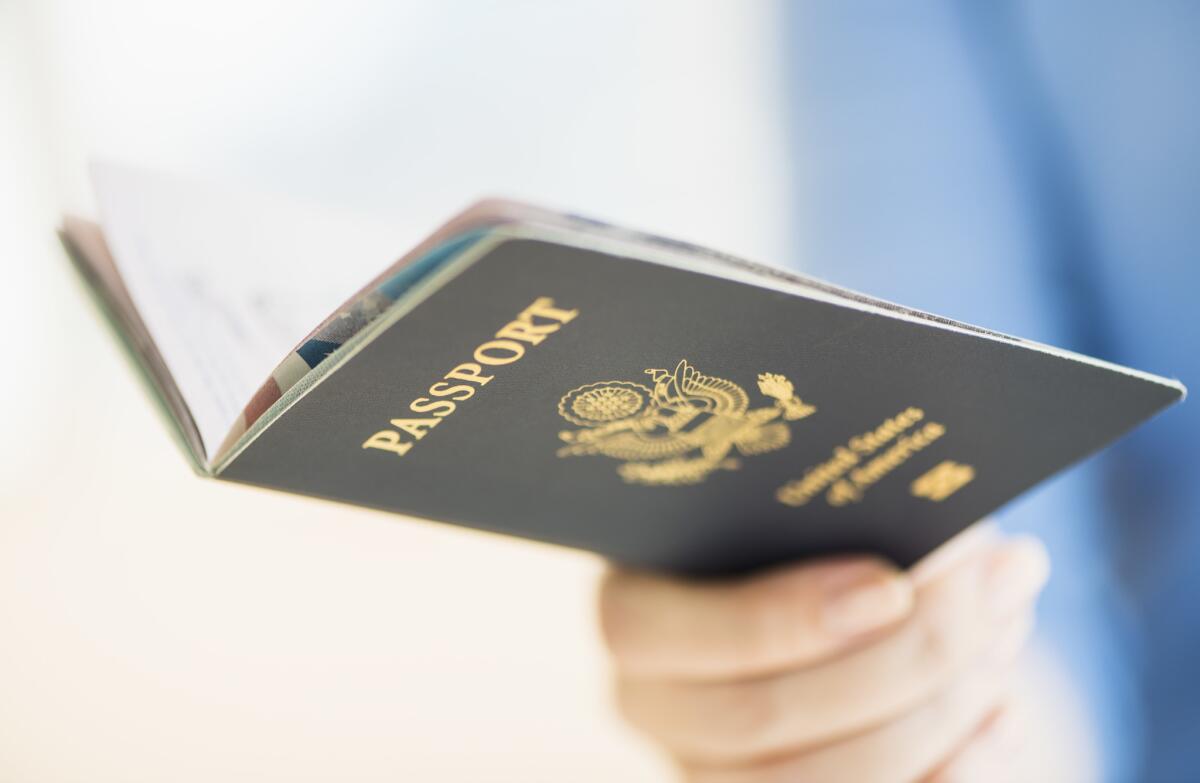
- Share via
Travel has changed since the global pandemic began its trip around the world. Don’t despair; travel won’t be off-limits forever. Here are some things that can help you navigate these difficult times and plan for the future.
1. Can I get a travel refund?
There are as many answers to this question as there are things to do in the world.
Airlines: Each airline conducts its business differently. Many airlines now are more liberal than usual if you decide to change your flight, sometimes waiving change fees.
If the airline cancels the flight, under most circumstances it will try to accommodate you. If it can’t within the time it specifies, it may give you a voucher or a refund. Don’t be surprised if the airline mentions the voucher first or doesn’t mention the refund at all (unless it’s Southwest). If its website or agent doesn’t mention a refund for a flight it canceled, ask and ask again. Not all are forthcoming about refunds. Read more about airline refunds at lat.ms/airlinerefundscredits.
Your credit card company can help when goods and services are not received. Be careful though.
Cruise lines: Cruise lines worldwide suspended sailings March 13 as the coronavirus pandemic spread. The Centers for Disease Control and Prevention on April 9 extended the no-sail order for cruise ships in the U.S., with no firm return date announced. Carnival, Disney and other cruise lines are pushing back their return-to-service dates and canceling more trips. You can get a refund or a future cruise credit, which usually comes with perks and credits to keep you on board. Read more about cruise policies at lat.ms/cruiserefundscredits.
Other travel: Here’s good news if you have or make Amtrak reservations before May 31: If you cancel your ticket and want a refund, you can get one. The only catch: You must call (800) 872-7245. The refund cannot be completed on Amtrak.com or the Amtrak app. Amtrak is also waiving change fees for reservations before the end of May. Reservations may be modified by phone, Amtrak.com or the app.
Travelers holding Disneyland tickets for a date when the theme park is closed won’t get a refund, but they may postpone their visit. For information, go to lat.ms/disneycoronatickets.
2. What about my elite status with my airline’s loyalty program?
Airlines want you back. Really. U.S. carriers have allowed passengers to change or cancel flights without penalty fees during the coronavirus pandemic. Some are giving elite members of their loyalty programs automatic extensions of their status — some as long as 18 months. For example, American Airlines recently announced it would reward AAdvantage members by granting an automatic extension of their status until Jan. 31, 2022. Members can expect to see the change reflected in their accounts on May 15. The airline also lowered the qualifications for elite status. Here are more loyalty program details at lat.ms/airlineloyaltyrewards.
3. Can I go to Hawaii as planned?
Hawaii doubled down on its stay-at home order April 25. With Georgia and a few other states easing restrictions, Gov. David Ige went in the opposite direction. To stop the spread of coronavirus, he extended the state’s stay-at-home order until May 31. The order closed state parks and monuments, historical sites, recreation areas and many businesses. Ige’s order extended mandatory quarantine rules too. Anyone flying to the islands will have to quarantine at home or at their hotel for 14 days.
4. Should I travel at all in the U.S. right now?
The short answer: It’s up to you. Of course, the real answer is more complicated. The Centers for Disease Control and Prevention usually doesn’t give travel advice, but the agency’s website (lat.ms/cdctravelguidelines) devotes an entire page to questions and factors to consider. The California Department of Public Health follows those same guidelines.
You need to weigh whether you are putting yourself or others at risk. Are you sick or do you have underlying health conditions? You probably shouldn’t be traveling and increasing your risk of getting the disease. Is your travel urgent? Every U.S. state has confirmed cases of COVID-19. “This whole [novel coronavirus] problem is evolving. Look where we were two months ago,” said Dr. Robert Winters, an infectious disease specialist in Santa Monica. Bottom line: We don’t know what we don’t know about the novel coronavirus.
5. Should I make plans for a summer vacation?
Maybe. There are incredible travel deals right now, from airfares to rafting trips, and that trend probably will continue as the tourism industry acts to recover pandemic losses. If you book, it’s possible you may be financially protected in a way you have not been. Refunds are more plentiful, but so are problems. And the issue of refunds continues to evolve, as have polices and practices that determine whether you get back your money, a credit or nothing at all. Here’s a guide atlat.ms/summervacationplans to help you decide whether to take a chance and be rewarded with good value or take a chance and suffer a financial loss.
As U.S. faces its most trying coronavirus pandemic days, industry leaders imagine the future of travel.
6. Can I renew my U.S. passport?
The U.S. State Department is not processing new passports and renewals except for emergency cases because of the coronavirus pandemic. As of March 20, “we are only able to offer service for customers with a qualified life-or-death emergency and who need a passport for immediate international travel within 72 hours,” the agency’s website says. Americans are being asked to wait to apply or renew until the agency resumes “normal operations.” If you already sent in your passport for renewal, you can expect significant delays.
7. I’m sick of working from home. Where else can I go?
Some Southern California luxury hotels will let you set up your virtual office for a day without having to stay overnight. For example, Paséa Hotel & Spa in Huntington Beach is offering Office Zen rooms for weekday use from 7 a.m. to 7 p.m., starting at $69. You can spring for a wellness suite that comes equipped with Mirror workouts to add some exercise “play” to your workday. Sister property Estancia La Jolla Hotel & Spa has the same offer.
More to Read
Sign up for The Wild
We’ll help you find the best places to hike, bike and run, as well as the perfect silent spots for meditation and yoga.
You may occasionally receive promotional content from the Los Angeles Times.
